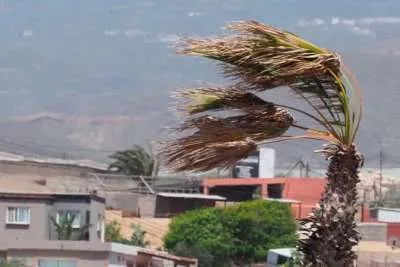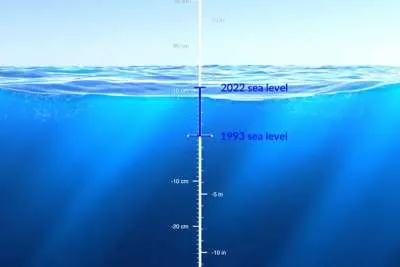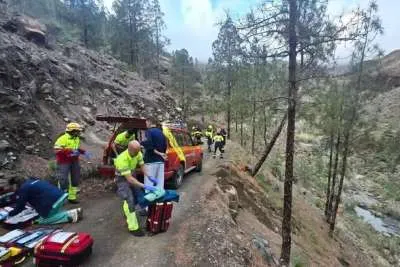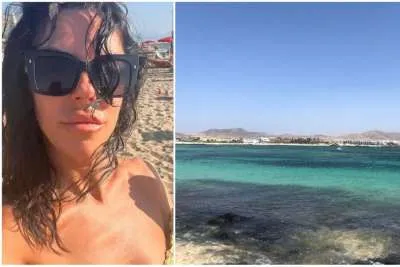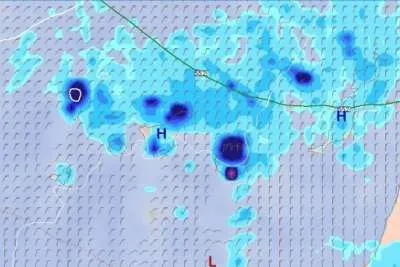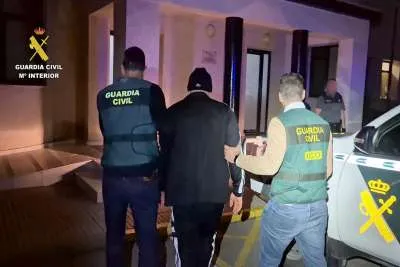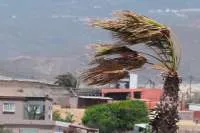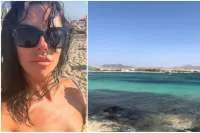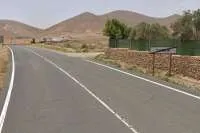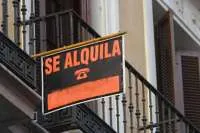Courts block construction of Siam Park in Gran Canaria
- 14-01-2021
- Gran Canaria
- Canarian Weekly
The Superior Court of Justice of the Canary Islands (TSJC) has annulled the Plan for Modernization, Improvement and Increase of Competitiveness (PMM) of El Veril, in Playa del Inglés, which covered the construction licence of Siam Park water park, plus a hotel, restaurant and cafeterias. This decision stops the construction of this project, which involves an investment of 80 million euros and the creation of 600 jobs. Without this PMM the City Council says that it will not be able to grant the mandatory building license, but, this resolution is still subject to appeal.
The Second Section of the Contentious-Administrative Chamber of the TSJC, at its headquarters in Las Palmas, considers the appeal filed by an individual against the decree of December 7th, 2015 by which the Government of the Canary Islands approved this PMM and declares it void in a sentence handed down on December 16th, 2020 for a question of form. The court warns that the PMM lacks a report from the Gran Canaria Island Water Council (CIA) on the water resources that are necessary, and their availability, to supply the demand that the new planned facilities will require.
María de las Mercedes Martín, the magistrate for the ruling, argues that the CIA's document that appears in the file "does not meet the minimum substantive requirements in relation to the existence and sufficiency of water resources to meet the new demands derived from the PMM, which, in this case,” she recalls, “are those that would require a water park and a hotel, among others.”
Pic: View of the El Veril site where the Siam Park is to be constructed.
According to the ruling, the regional government, one of the defendant institutions in this process, tried to justify those available water resources in its brief, answering the claim, but immediately afterwards underlines that "said justification in no case can replace the report that necessarily it must be issued by the competent entity", which in this case is the CIA.
It clarifies that the opinion issued by this body "addresses the aspect related to the delimitation of the public hydraulic domain and the availability of land through administrative concession," but does not speak of water resources. In this sense, this report is "manifestly insufficient" and it is this defect that forces the nullity of the PMM decree.
The legal representatives of Loro Parque SA said that the company will appeal the sentence, which it does not agree with, although it respects it. They are surprised that, unusually, the same court that has issued two favourable resolutions prior to this same PMM, now changes the criteria. "This creates terrible legal uncertainty. It maintains that the element on which the rapporteur supports the declaration of invalidity, the lack of a specific aspect in a report, is a defect that can be rectified, for which a partial estimate of the resource would have been sufficient without the need to back down a whole planning instrument that has already been endorsed twice before. Faced with the municipal thesis, the sentence is not final and it will be appealed, the PMM is in force and the City Council could give the license.”
This was also the only one of the various grounds for nullity alleged by the plaintiff that was upheld by the high court, five others are contested in the sentencing:
The appellant maintained the lack of coverage of the PMM in Law 2/2013 of the Canary Islands of May 29th, Renovation and Modernization of Tourism in the Canary Islands, and justified it in the fact that it does not exist in its scope, in El Veril, "there is no pre-existing tourist infrastructure that requires rehabilitation or improvement as it is a natural, virgin soil".
The judgment rejects it by specifying that a general interpretation of this law must prevail, in which article 6, for example, which is cited in the ruling, refers to the fact that its object is the renovation of urbanizations and tourist centres, the regeneration of the tourist city or the reactivation of economic activity, all objectives in which the appealed PMM would fit.
Nor does the TSJC share the appellant's thesis that this plan orders land classified as rural when, according to Law 2/2013 itself, the PMM "cannot classify or reclassify land if there is no prior municipal agreement that allows it." The ruling endorses the Government's argument in its answer to the lawsuit, which clarifies that the PMM only sectors a land that was already developable for tourist use, and for a recreational park, in the municipal planning of San Bartolomé.
The TSJC also denies that the PMM does not include a risk map, as alleged by the appellant, refutes that the environmental evaluation was processed under a different law than it should, and endorses the economic sustainability report that appears in the PMM.
The councillor for Urbanism of San Bartolomé de Tirajana, Alejandro Marichal, could not hide his disappointment yesterday (Wednesday) for the consequences of this judicial resolution, but he is clinging on to the fact that that the only downside that the TSJC puts foward is formal and, in principle, is easily remedied. “If a report is missing, it will be enough to include it,” says the mayor, hence his bet is to ask the Canary Government to start the processing from scratch again, although the work has already been done, and promote a new PMM, which would be quicker than waiting for the Supreme court.
For Marichal, the ruling that came out yesterday is "a severe blow to economic development and job creation for San Bartolomé de Tirajana." "And more if we take into account the economic circumstances that we are going through, in which our municipality has never been immersed," he added. "For this reason it is essential that all the administrations involved go hand in hand to carry out this project and others of interest to the municipality."
“With this premise, the intention of the City Council is to support the Government of the Canary Islands to promote the development and processing of a new PMM in order to remedy, as alluded to in the TSJC ruling, that the Insular Water Council provide the mandatory report ruling on the existence and availability of water resources. The City Council has water capacity to supply water to the water park through the concession company of the service," he adds.


















